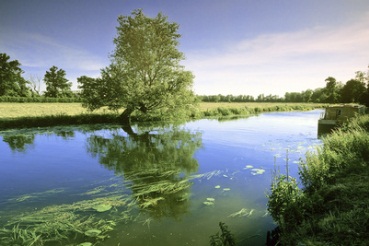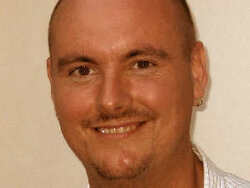Speaking a smart, coherent Christian philosophy
 Regular columnist James Knight likens the cleansing effect of speaking a smart and coherent Christian philosophy to clearing a polluted river of rubbish.
Regular columnist James Knight likens the cleansing effect of speaking a smart and coherent Christian philosophy to clearing a polluted river of rubbish.
The Christian role in society is significant, but complex too. It may be argued that a simple rule of thumb is that we are called to speak a smart and coherent Christian philosophy and also spread the love of Christ as best we can. We speak so much about spreading love, but do we tend to speak too infrequently about a smart and coherent Christian philosophy?
It ought to be noted that the reason we need a smart and coherent Christian philosophy is because there are a lot of thoughts, beliefs, ideas and opinions that lack smartness and coherence. So given the foregoing, I thought I'd express how I see the situation with an analogy.
One may compare the salvation story of Christianity to a constantly flowing, unpolluted river. Here 'unpolluted' represents a pure Christianity unsullied by human litter. Human litter represents the bad logical arguments for God, the crass distortions of science, and all other kinds of extremism we see in the church.*
*With pollution, I don't mean our inevitable sins, because they've already been paid for on the cross, so they are part of the salvation story and thus part of the clean water (because Christ made it clean for us with Divine grace)
The flow of the river represents a dynamically evolving and changing Christianity. And wherever one is on the riverbank represents one's overall impression of Christianity at that localised point of perception. Human beings make the water more polluted by dumping all kinds of rubbish in the river - discordances like bad arguments for God, poorly reasoned philosophies, fundamentalism, misjudgements about the natural world, sectarian ostracisms, and what have you - but other human beings make the water less polluted by removing whatever rubbish they can in reaction to the said discordances.
Naturally, like most crass distortions of reality, it is a lot easier to put rubbish in than remove it, as we have found all too readily with fundamentalism, with the pub-jacking, quote-mining, and one-off sound bites that take longer to refute than they do to accept blithely.
Suppose you were standing on the riverbank in the mid seventeenth century - you would see the river had been polluted by the extreme Catholic reaction to Galileo. Let's say that particular pollution took the form of masses of empty bottles being thrown in the water. The further away on the riverbank henceforward one found oneself, the fewer instances of geocentrism one would see, because those bottles have been removed (excepting the odd anachronistic crackpot).
That's the nature of the dynamic flow. Naturally the state of the river's pollution is constantly changing, and the banks are long and wide, and there are two sides to the river, so different localised perspectives constitute observations of different parts of Christianity's state from different cultures.
Currently we are observing the flowing river in the contemporary age (although from different sides of the bank in many cases). We know that lots of kinds of rubbish have been thrown in, and that many have been all but removed before we were born. But many bits of rubbish linger on in the river, getting swept on by the flow of the river, awaiting removal. The current arms race, certainly with regard to our intentions here, is between those continuing to add more clutter to the waters, and our attempts to remove them.
Our success at removing the pollution is about minimising the clutter so that from whichever bank a prospective observer views the state of the water, he or she sees as clean a river flow as we can possibly make it for them.
You may argue that one person’s pollution is another person’s smart and coherent Christian philosophy, so why bother? But that’s as misjudged as saying “Not everyone drives well, so why bother trying to write a highway code?” or “Sometimes scientific errors are made so why bother doing science at all?”.
Presumably most Christians believe there are right and wrong thoughts, beliefs, ideas and opinions, so it makes sense that humanity pulls together in trying to sort out the right from the wrong as best we can. Pollution not only tarnishes the reputation of Christianity, it disfigures its face to the extent that many find it hard to focus on the clean water because they are so distracted by the clutter.
That's how I see our job - to do what we can to remove the rubbish from the river. We cannot get it all out - but the little bits we are able to remove might just provide a clear enough sense of the clean water for others to identify with the abundant grace of Christ.
 James Knight is a long term contributor to the Network Norwich & Norfolk website and a local government officer based in Norwich.
James Knight is a long term contributor to the Network Norwich & Norfolk website and a local government officer based in Norwich.
The views carried here are those of the author, not of Network Norwich and Norfolk, and are intended to stimulate constructive debate between website users.
We welcome your thoughts and comments, posted below, upon the ideas expressed here.